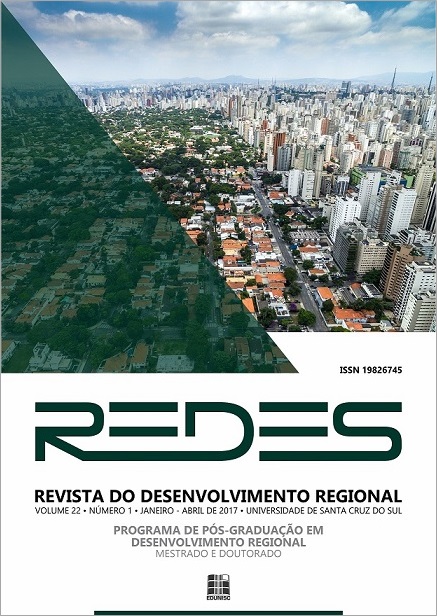The strategic role of twin cities in controlling goods in border regions in the MERCOSUR context: Uruguaiana (BR) and Paso de los Libres (AR)
DOI:
https://doi.org/10.17058/redes.v22i1.8667Keywords:
Border regions. MERCOSUL. Twin cities. Flow of goods.Abstract
Border territory is a potential space for shared development projects between countries, but there are many challenges for integration policies in South America. Nonetheless, regional trade interests point to a necessary revision of the existing limits and barriers. In this sense, the Common Market of the South (MERCOSUL), since 1991 (year of its creation), made an agreement among its member states aiming to improve goods, services and people flow. However, regional projects has been in conflict with the unequal reality of their twin cities, which do not have infrastructure or social conditions for such dynamics. In this context, more specifically the Platina Basin, the twin cities of Uruguaiana (BRA)-Paso de los Libres (ARG) have assumed an important role in the flow control of goods and people, according to commercial demands, although their development conditions are precarious. The paper proposes to discuss the role of these twin cities as functional and spatially strategic nodes of MERCOSUL.Downloads
Download data is not yet available.
Downloads
Published
2016-12-31
How to Cite
Campos, H. Ávila. (2016). The strategic role of twin cities in controlling goods in border regions in the MERCOSUR context: Uruguaiana (BR) and Paso de los Libres (AR). Redes , 22(1), 56-73. https://doi.org/10.17058/redes.v22i1.8667
Issue
Section
Desenvolvimento Urbano e Regional: Processos, Políticas e Transformações Territoriais



